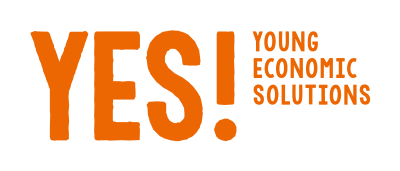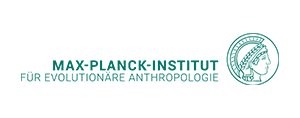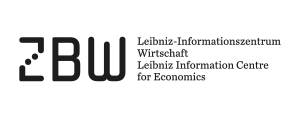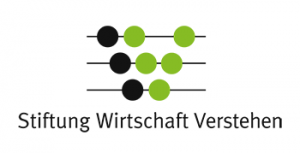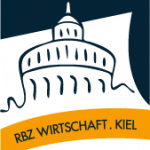Disrupting the system – How can students drive policies regarding the role of AI in their school and society?
von Dustin Eirdosh, Ph.D. und Dr. Susan Hanisch, Max-Planck-Institut für evolutionäre Anthropologie
Dieses Thema kann im Kick-Off und im Fachgespräch nur auf Englisch bearbeitet werden.
Artificial Intelligences (AI) are becoming more deeply a part of our society at a very rapid pace. They are what are considered “disruptive technologies” – i.e. technologies that fundamentally change society and people’s lives. How will or should AI change schools and education systems – such as the curriculum, teaching and learning practices, learning goals and assessment as well as the way schools are organized?
Many educational experts regard current school systems to be outdated and not well adapted to 21st century needs and opportunities. So how can the emergence of AI “disrupt” current school systems in a positive way, how can it be a factor that accelerates the evolution of schools such that schools can foster motivation, meaningful learning, positive relationships, and success of students and teachers in the 21st century?
Such questions cannot be answered by high level policy makers alone, but it requires the participation and input of all school stakeholders – including students, teachers, parents themselves. In order to participate in such decisions and in order to make sure that AI can have positive impacts on schools, stakeholders need to know certain things about AI and need to be able to explore how AI is affecting their school community.
How can _students _become drivers of these discussions, of policies and practices regarding the uses of AI in their school and community? What do students need to know about these trends, in order to be leaders in this discussion?
In this project topic, students can look at the big trends and societal questions about AI technologies and their role in education, and explore solutions to how schools can more effectively help students and teachers navigate these emerging and near future issues.
How can schools ensure their curriculum and practical opportunities for students are adequate to the societal changes driven by AI technologies?
- What skills do students and teachers need for an AI-influenced future?
- How is our school working to support these skills? In what ways could/should our school or education system support these skills?
- What changes need to happen on the level of standard curriculum and exams in order to integrate AI as a useful tool for learning and assessment (rather than viewing it as a tool for cheating and prohibiting its use)
How can schools form a Community Science Lab to study and influence the long-term impact of AI on their students, teachers, and school community as a whole? For example, exploring questions like:
- What attitudes do teachers, parents, policy makers, and students (at our school and beyond) have around the strengths and potential as well as harmful effects of AI on teaching and learning?
- How and for what purposes are AI used by teachers and students?
- How does the use of AI change (views on) teaching, learning and assessment at our school?
- How can schools ensure their curriculum and practical opportunities for students are adequate to the societal changes driven by AI technologies?
Must-Read Literatur
The future of education in a world of AI – by Ethan Mollick https://www.oneusefulthing.org/p/the-future-of-education-in-a-world
The Homework Apocalypse – by Ethan Mollick https://www.oneusefulthing.org/p/the-homework-apocalypse
Weiterführende Literatur
Artificial intelligence in education | UNESCO https://www.unesco.org/en/digital-education/artificial-intelligence
Das Thema wird betreut von
Dustin Eirdosh
 Dr. Eirdosh ist Educational Innovation Coordinator an der Abteilung für vergleichende Kulturpsychologie am Max-Planck-Institut für evolutionäre Anthropologie. Er beschäftigt sich damit, welche Bedeutung wissenschaftliche Erkenntnisse zu menschlichem Verhalten und menschlicher Evolution auf Schule und Bildung im 21. Jahrhundert haben.
Dr. Eirdosh ist Educational Innovation Coordinator an der Abteilung für vergleichende Kulturpsychologie am Max-Planck-Institut für evolutionäre Anthropologie. Er beschäftigt sich damit, welche Bedeutung wissenschaftliche Erkenntnisse zu menschlichem Verhalten und menschlicher Evolution auf Schule und Bildung im 21. Jahrhundert haben.

Susan Hanisch
 Dr. Susan Hanisch ist Erziehungswissenschaftlerin an der Universität Leipzig. In ihrer Forschung und Bildungsarbeit befasst sie sich mit Bildung für nachhaltige Entwicklung und partizipativer Schulentwicklung, und welche Rolle wissenschaftliche Erkenntnisse über menschliches Verhalten und menschliche Evolution dabei spielen können.
Dr. Susan Hanisch ist Erziehungswissenschaftlerin an der Universität Leipzig. In ihrer Forschung und Bildungsarbeit befasst sie sich mit Bildung für nachhaltige Entwicklung und partizipativer Schulentwicklung, und welche Rolle wissenschaftliche Erkenntnisse über menschliches Verhalten und menschliche Evolution dabei spielen können.
